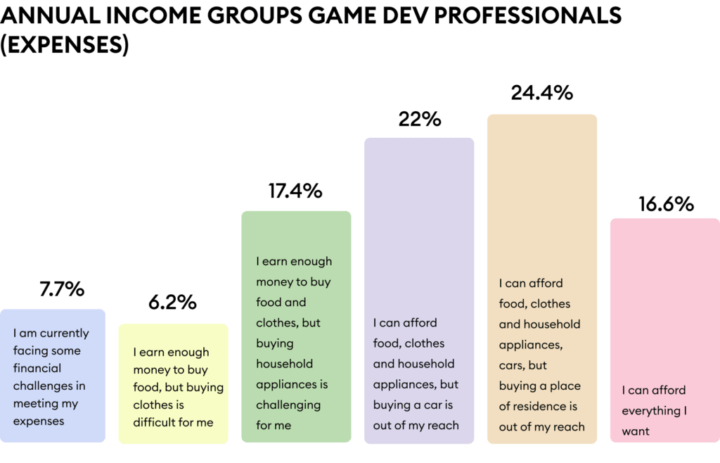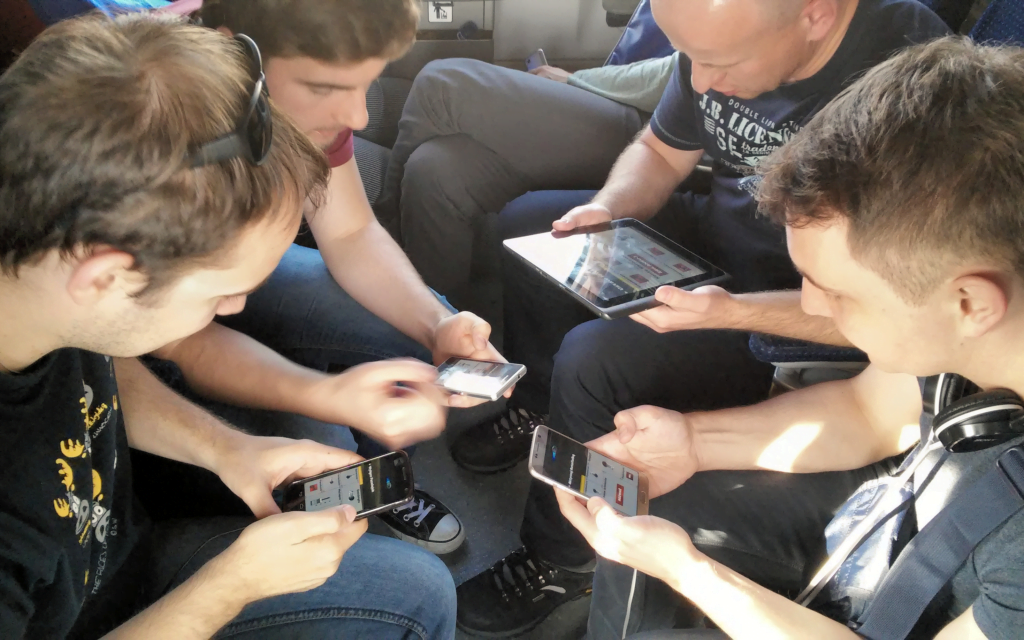From Bedroom Coder to Indie Icon: A Guide to Successful Game Development
Have you ever dreamt of crafting the next indie sensation? Stories abound of bedroom programmers striking gold with their innovative games. Indie game development can be a thrilling yet challenging journey. But fear not, aspiring developer! The truth is that success is absolutely within your reach. Did you know that according to the 2023 Gamasutra Salary Survey, a surprising 22% of indie developers actually earn a living from their creations. This isn’t just a pipe dream – it’s about harnessing your creative fire and wielding smart business strategies.
This comprehensive guide unlocks the secrets to indie game development success. We’ll leverage the wisdom of established developers, industry reports, and the latest research to empower you. Buckle up – we’re about to navigate the complexities of game creation and equip you to forge a profitable title that players will love.
Beyond the Initial Spark: Loving the Grind (and the Stats!)
Falling head-over-heels for your game concept is a natural part of the process. But let’s be honest; the path from that initial spark to a polished product can be long and demanding. Many aspiring devs get bogged down in the nitty-gritty of development, losing sight of the initial excitement. Here’s the key shift in perspective: embrace the entire development cycle!
A 2021 study by the Independent Games Developers Association (IGDA) sheds light on this critical aspect. Their research found that developers who derived enjoyment from the entire process, from the thrill of programming to the meticulous task of debugging tedious code, were more likely to complete their projects. This highlights the importance of fostering a sense of fulfilment throughout the development journey, not just at the ideation stage. Think of it this way: Development isn’t just about the “aha!” moment of your initial concept. It’s about the satisfaction of overcoming challenges, iterating on your design, and witnessing your vision come to life.
Feel free to check out this other article, which explains the various development steps.
Research: Your Weapon Against the Indie Graveyard (Data Wins)
Jumping headfirst into development without proper research is a recipe for a game nobody wants to play. Deep research into your chosen genre is essential. This means:
- Identifying Similar Games: Utilize tools like GamesLikeFinder to discover existing titles that share similar mechanics or themes. Analyze their strengths and weaknesses to identify potential opportunities for your own game. Ask yourself: what makes these games successful? What could be improved?
- Understanding Your Player Base: Age, interests, preferred playstyles—data is your friend! Platforms like Steam Spy offer valuable insights into player demographics for specific genres. Imagine this: are you creating a fast-paced roguelike for hardcore gamers or a relaxing puzzle game for a casual audience? Knowing your target market is crucial.
- Pinpointing Your Submarket: Where exactly does your game fit in? Are you creating a fast-paced roguelike within the broader action-adventure genre? Understanding your submarket allows you to tailor your game’s features and marketing strategy to resonate with a specific audience. For example, A metroidvania with a heavy emphasis on narrative might target a different audience than a purely skill-based roguelike.
The Game Developer website is a goldmine of resources – research articles, industry reports, and insightful developer interviews are all at your fingertips. Don’t forget market research tools like Newzoo for in-depth player preference insights and current market trends. By conducting thorough research, you avoid creating a game for a non-existent market and ensure your title caters to a specific audience with a proven interest in similar experiences.

Know Your Audience: The Missing Puzzle Piece (Powered by Player Feedback)
Before you embark on your development journey, it’s crucial to truly understand and appreciate your target audience. Their feedback is invaluable and can shape the direction of your game. Here are some ways to connect with them and glean their insights:
- Online Surveys and Forums: Platforms like Reddit’s game development communities or niche forums dedicated to your chosen genre are excellent places to start conversations with potential players. Craft targeted surveys that delve into their gaming preferences, likes, and dislikes within the genre.
- Social Media Engagement: Use platforms like X (Twitter) or Discord to connect with potential players directly. Here’s a tip: Don’t just broadcast information—spark discussions! Ask questions about their favourite games, what mechanics they find frustrating, or what features they’d love to see in a new title.
Note: you’re not just creating a game – you’re building an experience for them. This could involve aspects like gameplay mechanics, visuals, or even the overall theme. Studies published in the Journal of Game Design and Development (Vol. 3, Issue 2) show that a data-driven approach to game design, informed by player feedback, significantly increases the likelihood of a game’s success. Tools like UserTesting can be your secret weapon for gathering feedback throughout development. Imagine being able to observe real players interact with your game and identify areas for improvement before launch.
Marketing Matters: Don’t Just Throw Content Out There (Building a Community)
Marketing is often the Achilles’ heel of many indie games. The digital landscape is overflowing with content, and generic social media posts get lost in the noise. To succeed, you need to understand your audience on a deeper level. Don’t just throw content out there and hope for the best – craft a targeted marketing strategy that delivers valuable and engaging content that resonates with your ideal players. Here are some creative marketing ideas to consider:
- Informative Tutorials: Create short, engaging tutorials that showcase core gameplay mechanics and highlight the unique aspects of your game. This will not only educate potential players but also build confidence and excitement.
- Gameplay Clips with Developer Commentary: Offer behind-the-scenes glimpses into the development process through gameplay clips with insightful commentary from developers. This allows players to connect with the creators and understand the passion behind the project. Think about it – people love to see the heart and soul poured into a game!
- Livestreams and Q&A Sessions: Host regular livestreams where you play the game and answer viewers’ questions. This fosters a sense of community and allows you to engage directly with your target audience in real-time. Bonus tip: Offer exclusive content or early access to features during these livestreams to incentivize participation.
Building a solid community around your game even before launch can be incredibly beneficial. Utilize platforms like Discord to connect with potential players, answer their questions, and generate excitement for your project. Studies by the Entertainment Software Association have shown that a strong community presence can significantly increase pre-orders and boost overall sales upon release. Imagine a group of enthusiastic players eagerly awaiting your game’s release – that kind of buzz can propel your title to success.

The Art and Business of Indie Game Dev: A Delicate Dance (Striking Harmony)
Indie game development is all about striking a perfect balance between creative passion and business savvy. By following the key steps outlined here, you’ll significantly increase your chances of transforming your indie dream into a profitable reality:
- Cultivating a love for the entire development process. (Embrace the grind!)
- Researching your audience thoroughly with data-driven insights. (Know your target market!)
- Implementing clever marketing strategies that build a community. (Don’t just throw content out there – engage your audience!)
Even with careful planning, there’s no guaranteed formula. However, with a balanced approach that acknowledges both the creative and business aspects, you’ll be well on your way to carving your own niche in the dynamic world of indie game development.
Start Your Journey with Confidence (Additional Resources and Support)
This comprehensive guide has provided a roadmap for navigating the complexities of indie game development. Note that the journey itself is a valuable learning experience. Embrace the challenges, celebrate the victories, and most importantly, never lose sight of the passion that ignited your creative spark. The world of indie gaming awaits your unique voice – what ground-breaking experience will you bring to life?
Here are some additional resources to support your indie game development journey:
- The Indie Game Dev Podcast: – Weekly interviews with successful indie developers offering insights and practical advice.
- GDC Vault: – Access to presentations and talks from the Game Developers Conference, a treasure trove of knowledge from industry leaders.
- Unreal Engine Learning or Unity Learn: – Comprehensive tutorials and learning resources for popular game development engines.
- Indie Megabooth: – A platform that helps indie developers showcase their games at major gaming conventions.

Building Your Dream Team (The Power of Collaboration)
Indie game development can be a solo venture, but for many projects, building a team is the key to success. Here’s why collaboration can be so powerful:
- Specialized Skills: A solo developer might be a coding whiz but struggle with art or sound design. A well-rounded team brings together individuals with complementary skills, ensuring a more polished final product.
- Increased Efficiency: Dividing tasks across a team can significantly accelerate development. Imagine a programmer focusing on core mechanics while an artist crafts stunning visuals – that’s the power of collaboration!
- Diverse Perspectives: Multiple minds bring fresh ideas to the table. Brainstorming sessions with your team can spark innovative solutions and help refine your game concept.
Finding Your Team:
The internet offers a wealth of resources for connecting with other aspiring game developers. Here are a few starting points:
- Online Forums and Communities: Platforms like Reddit’s game development forums or Discord servers dedicated to specific engines or genres are excellent places to find potential collaborators.
- Freelance Marketplaces: Websites like Upwork or Fiverr allow you to browse profiles of freelance artists, programmers, and sound designers. Be sure to carefully review portfolios and experience before hiring.
- Game Jams: These short-form development competitions are a fantastic way to meet other developers and test your collaborative skills under pressure. Who knows, you might just find your perfect teammate at a game jam!
To know more about all the disciplines, check out this other article!
Communication is Key:
Once you’ve assembled your team, clear and consistent communication is essential. Here are some tips:
- Establish Roles and Responsibilities: Define each team member’s responsibility to avoid confusion and duplication of effort.
- Utilize Project Management Tools: Platforms like Trello or Asana can help visualize tasks, track progress, and streamline communication.
- Hold Regular Meetings: Schedule regular team meetings to discuss progress, address challenges, and brainstorm ideas.
Building a successful team is about more than just finding talented individuals. It’s about fostering trust, open communication, and a shared passion for your game project.
Gear Up for Success: Essential Tools and Resources
The landscape of game development is brimming with powerful tools and resources to empower aspiring devs. Here are a few essentials to consider:
- Game Development Engines: Unity and Unreal Engine are the industry heavyweights, offering robust features and vast communities. For beginners, maybe consider more user-friendly options like Godot or Construct 3.
- Version Control Systems: Tools like Git allow you to track changes to your codebase, collaborate effectively, and revert to previous versions if needed.
- Asset Stores: These online marketplaces offer a wealth of pre-made art, sound effects, and code snippets – a great way to save development time and add polish to your game.
- Development Resources: Websites like Gamasutra and GameDev.net are treasure troves of tutorials, articles, and industry insights.
Don’t be overwhelmed by the sheer number of tools available. Start with the essentials and explore more advanced options as your skills and project needs grow.
This comprehensive guide has equipped you with the knowledge and resources to embark on your indie game development journey. With dedication, creativity, and a strategic approach, you have the potential to turn your dream game into a reality. So, what are you waiting for? Start building, creating, and bring your unique vision to the world of indie gaming!
